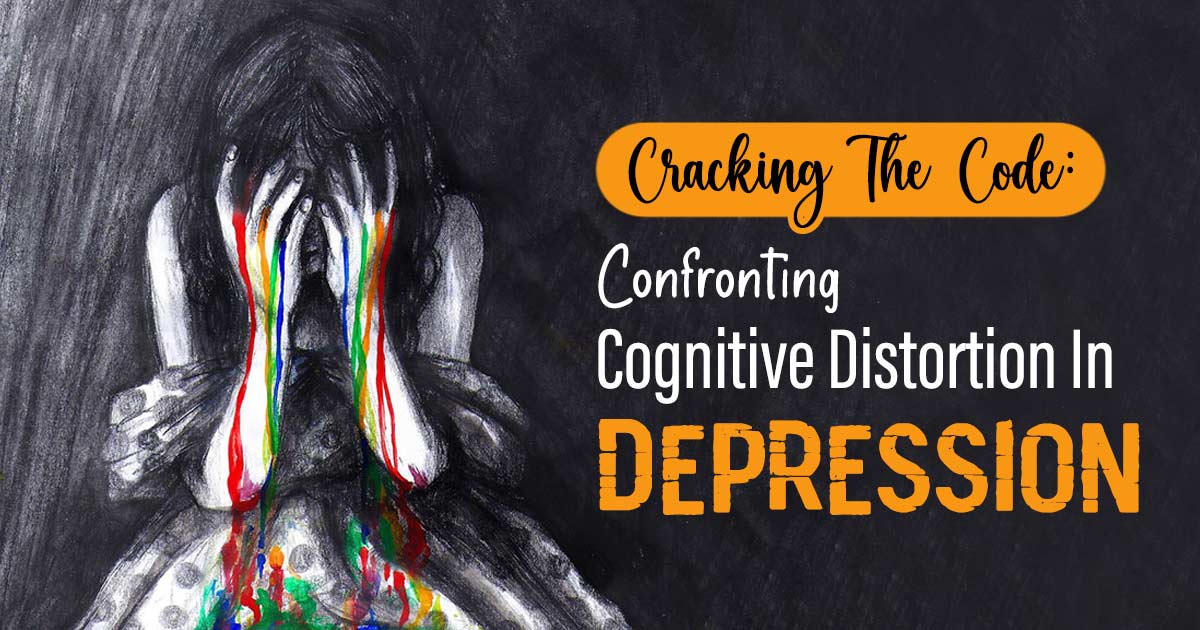Depression is a pervasive and debilitating mental health condition that affects millions of individuals worldwide. Beyond its well-documented symptoms of persistent sadness and loss of interest, depression often brings with it a distorted view of reality. This distortion is often fueled by a phenomenon known as psychic equivalence in depression, where what we experience in our minds feels as real as the external world.
The Nature Of Psychic Equivalence In Depression
Psychic equivalence in depression is a cognitive phenomenon where individuals experiencing it perceive their internal emotional states as a direct reflection of external reality. This means that during episodes of depression, individuals tend to view the world through the lens of their own negative emotions.
They may believe that because they feel unworthy or unloved, the world must inherently view them in the same light. This cognitive distortion can be profoundly distressing and is often responsible for the intense feelings of isolation and hopelessness that characterize depression.
Emotional Reasoning And Cognitive Distortion
In cognitive behavioral therapy (CBT), a widely used approach for treating depression, this crossover between emotional experience and reality is referred to as emotional reasoning. It involves the idea that our emotions influence our thinking patterns, leading to distorted and irrational thoughts.
For instance, if someone with depression feels unloved, they may conclude that no one cares about them, even when evidence to the contrary exists. This emotional reasoning perpetuates negative thought patterns and contributes to the cycle of depression.
Understanding psychic equivalence in depression is essential for therapists and individuals dealing with depression. Recognizing that these thoughts are products of a mental health condition rather than accurate representations of reality is the first step towards addressing the distortion.
The Role Of Stress And Vulnerability
While anyone can experience psychic equivalence in depression, individuals battling depression are more vulnerable to this phenomenon. Stress, a common trigger for depression, exacerbates the distortions associated with psychic equivalence. The increased vulnerability stems from the cognitive and emotional turmoil that accompanies depressive episodes, making individuals more susceptible to interpreting their emotions as absolute truths.
Furthermore, some individuals have a predisposition towards psychic equivalence, making them more likely to experience it during depressive episodes. This vulnerability can stem from various factors, including genetics and early life experiences. It is worth noting that psychic equivalence is not exclusive to those with depression; it can manifest in various mental health conditions.
The Impact Of Psychic Equivalence In Depression
Unchecked psychic equivalence in depression can have a profound impact on individuals’ lives, exacerbating the symptoms of depression and impeding their ability to maintain healthy relationships and a positive self-image.
When someone believes that the world views them as inadequate or unlikable, they may act on these beliefs by withdrawing from social interactions, isolating themselves, or even lashing out at others. These behaviors can reinforce their distorted perception of reality and further isolate them from support systems.
In severe cases, psychic equivalence can resemble psychosis, leading to delusions that further detach individuals from the real world. This highlights the urgency of recognizing and addressing this phenomenon in individuals with depression.
Recognizing And Addressing Psychic Equivalence In Depression
Recognizing psychic equivalence within oneself is a crucial first step toward addressing this cognitive distortion. This self-awareness can be particularly challenging during depressive episodes when the mind is clouded by negative emotions. However, the ability to catch oneself in the act of equating internal emotional states with external reality can be a powerful tool in breaking the cycle of depression.
One effective approach is to engage in self-reflection and reality-checking. When caught in the grip of psychic equivalence in depression, taking a step back to examine the evidence for one’s negative beliefs can be enlightening. This can be done independently or with the assistance of a trusted friend or therapist who can provide an objective perspective.
The Role Of Psychotherapy
Psychotherapy, especially approaches that focus on mentalization, offers valuable support in addressing psychic equivalence in depression. Mentalization-based therapy (MBT) is one such approach that centers on improving an individual’s ability to understand themselves and others in real time.
In MBT, the therapist works with the individual to assess and create a mentalizing profile. This profile helps individuals gain insight into how they are relating to themselves and others, shedding light on the cognitive distortions associated with psychic equivalence. Once identified, a therapist can employ specific strategies to help individuals regain control over their thought processes and emotions.
Depression is a pervasive mental health condition that not only affects an individual’s emotional state but also distorts their perception of reality. Psychic equivalence, where internal emotional states are equated with external reality, plays a significant role in perpetuating these distortions. While psychic equivalence in depression may be a formidable foe, it is not an insurmountable one. With the right tools and support, individuals can regain control over their thoughts, emotions, and ultimately their lives, offering hope for a brighter future beyond the shadows of depression.










